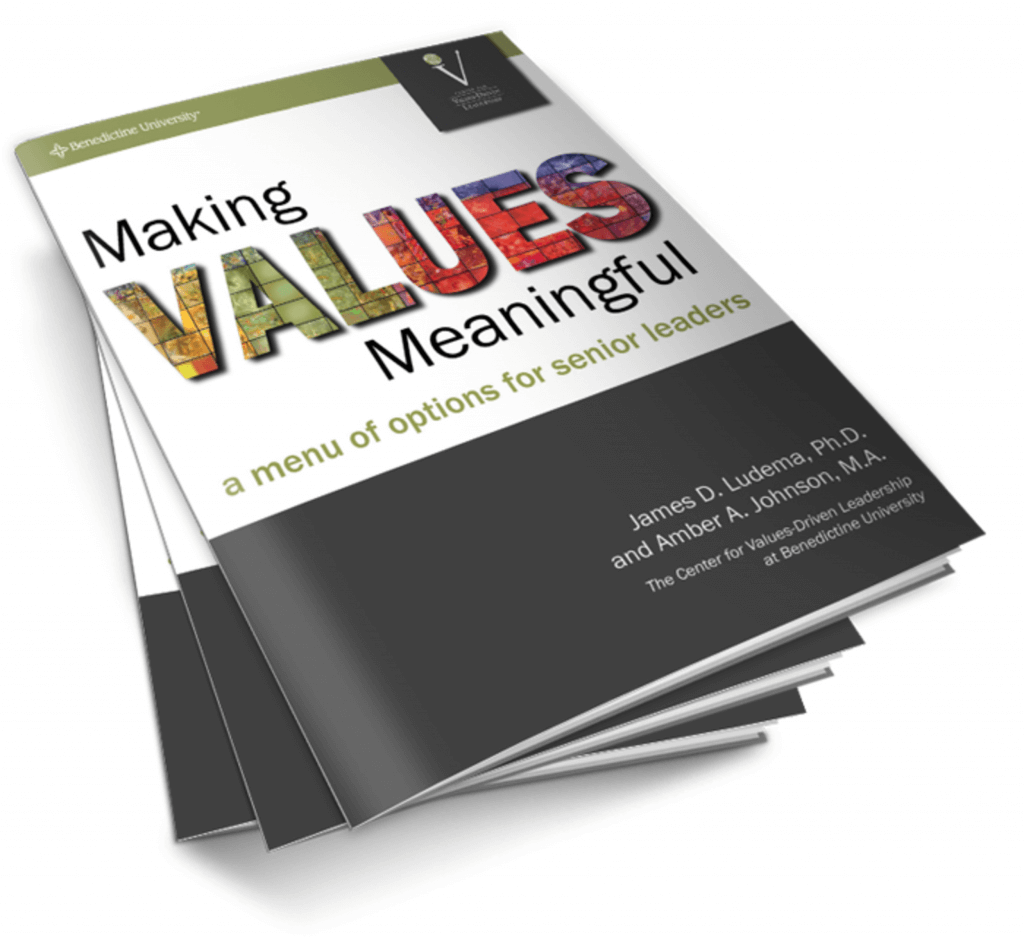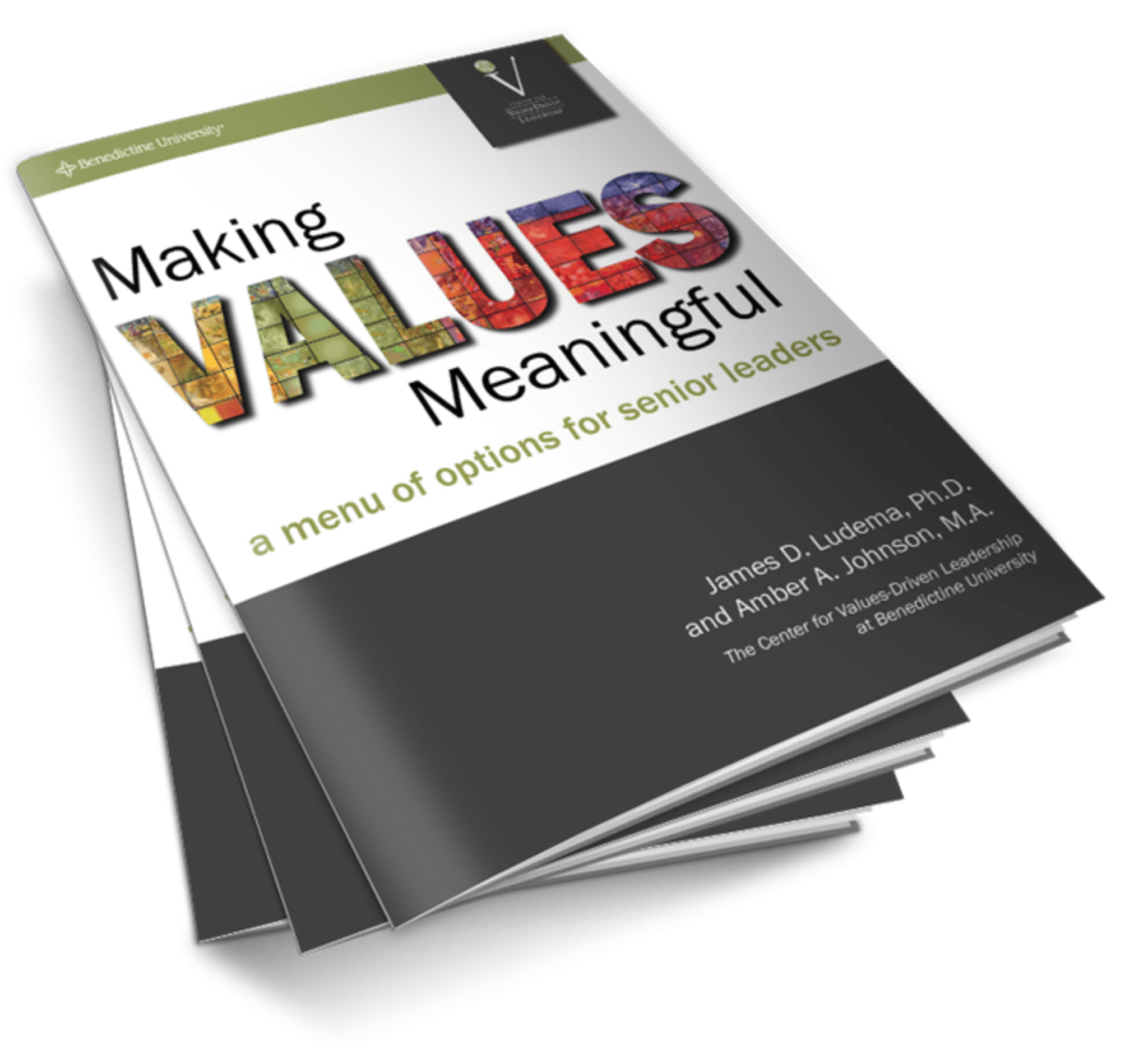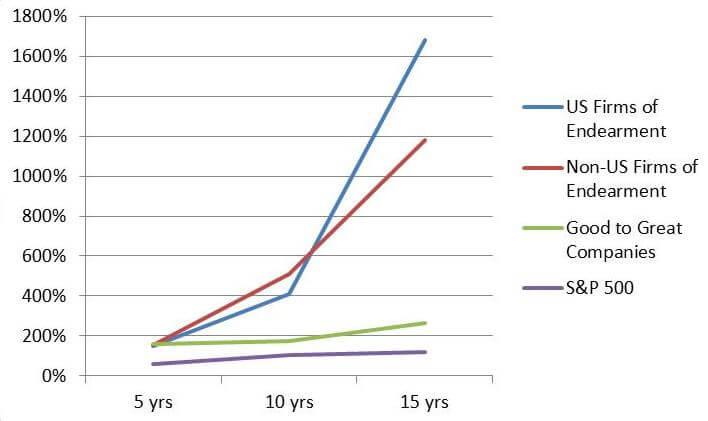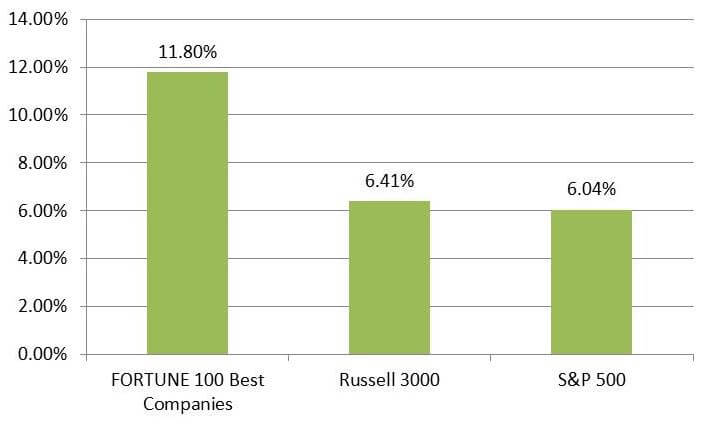 Note: The following article is an excerpt from the Center’s new e-Book, Making Values Meaningful: A Menu of Options for Senior Leaders.
Note: The following article is an excerpt from the Center’s new e-Book, Making Values Meaningful: A Menu of Options for Senior Leaders.
Landing a $2 million dollar contract is a big deal in a company the size of Syncroness, a Denver-based engineering consulting firm. CEO Mike Walraven was delighted when a new client signed Syncroness to provide research for a
technology feasibility study.
“It was a fairly significant contract for us,” says Walraven. This was exactly why the team was disappointed to find – two weeks into a two year contract – that the existing technology could not do what the client wanted. “The physics were such that it just couldn’t be done – it couldn’t be scaled to fit the need,” says Walraven.
Now Walraven and his young company faced an ethical decision: let the client know immediately and loose the $2 million dollar deal or drag the project out in hopes of keeping some of the contract’s money on the table.
Walraven made the ethical choice because it aligned with the company’s values of creating lasting relationships and leaving a legacy of integrity. “I had to tell the client, ‘We’d just be burning your money to continue this research.’”
The tough choice paid off. It took a few years, but the client returned to Syncroness the next time they had an engineering research need. More importantly, word of Walraven’s honesty with clients circulated in the industry, leading to a stellar reputation and many new clients.
Syncroness’ story is just one of many we’ve heard over the years: stories of leaders making critical decisions guided by a strong set of core values. There are no guarantees in business, but this equation generally holds true:
Clear Leadership
+ Solid Strategy
+ Values-Driven Culture
= Sustainable Success
What is a Values-Driven Culture?
Values-driven companies are guided by a publicly-identified set of core values that reflect their highest aspirations.
Typically these values include a commitment to honesty and integrity, care for people, excellence in products and services, concern for all stakeholders, a long-term view, and contribution to a flourishing society, but the values need to fit with the company’s purpose and industry. While the value of “safety” is central to DuPont, online shoe and clothing retailer Zappos puts the focus on “Creating fun and a little weirdness.”
In strong, values-driven companies, these core values are consistently used to guide day-to-day decision making, inspire leadership, and hold the organization and its people accountable.
Why Does It Matter?
One word: success.
In their book, Firms of Endearment, Raj Sisodia and co-authors showed that “purpose-driven” companies (those with a strong sense of purpose and core values; a commitment to customers, team members, suppliers, and communities; and people-centered cultures and leadership) outperformed the S&P 500 in cumulative returns by 14 times and Good to Great companies by 6 times over a period of 15 years from 1998-2013.
Sources: FirmsofEndearment.com
Since 1997, the Great Places to Work Institute and Fortune magazine have shown that firms on their list of America’s “100 Best Companies to Work For” (companies high in trust, pride, camaraderie, and fulfillment among team members) have significantly outperformed the market.
Source: GreatPlacestoWork.com.
Ethisphere shows similar results in their annual “World’s Most Ethical Companies” list, which considers corporate citizenship; governance; innovation for public well-being; industry leadership; “tone from the top;” legal, regulatory and reputation track record; and ethics and compliance programs. Collectively, these companies have outperformed the S&P 500 by an average of 7.3% annually.
 Source: Ethisphere.com (2011)
Source: Ethisphere.com (2011)
How do values-driven companies like these deliver superior results?
It boils down to four key factors:
Credibility and Trust – Integrated Project Management Company (IPM), a project execution consulting firm based on Burr Ridge, IL, has made the Inc. 5000 list as one of the fastest growing companies in America for seven years running (2007-2013) and has been designated a “Top” or “Best” Small Workplace by Winning Workplaces, the Wall Street Journal, the Great Place to Work Institute, Entrepreneur, and Fortune.
![]() Check out this video, in which Founder and CEO Rich Panico explains the link between IPM’s core values and business success: “Our clients realize we’re honest, our repeat business is over 90%, and that is driving top and bottom line growth.”
Check out this video, in which Founder and CEO Rich Panico explains the link between IPM’s core values and business success: “Our clients realize we’re honest, our repeat business is over 90%, and that is driving top and bottom line growth.”
Committed and Engaged Team Members – Like IPM, BerylHealth, the industry leader in outsourced contact center services, has consistently made the Inc. 5000, has received many “Best Workplaces” awards, and regularly returns profit margins that exceed competitors three to four fold.
![]() In this video, Paul Spiegelman, founder of BerylHealth and author of the best-selling books Why is Everyone Smiling? and Patients Come Second, uses the phrase “Circle of Growth” to describe how investment in people leads to employee loyalty, which leads to customer loyalty, and in turn leads to financial success.
In this video, Paul Spiegelman, founder of BerylHealth and author of the best-selling books Why is Everyone Smiling? and Patients Come Second, uses the phrase “Circle of Growth” to describe how investment in people leads to employee loyalty, which leads to customer loyalty, and in turn leads to financial success.![]()
Happy, High-Quality Customers – In their book Conscious Capitalism, John Mackey and Raj Sisodia argue that the number one explanation for superior performance is superior acceptance by customers. Great companies are loved by their customers who become ardent fans and advocates. As a result, these companies generate higher sales, routinely outperform industry averages on metrics such a sales per square foot and revenue per team member, and can reinvest earnings back into the company and still be cost competitive. Like Paul, they claim it’s a virtuous cycle: engaged team members attract high-quality customers, which in turn drive top and bottom-line growth.
Resilience and Innovation – Leadership expert Kim Cameron and his colleagues at the University of Michigan have identified six core values (called positive practices) that are predictive of organizational effectiveness. They include caring, compassionate support, forgiveness, inspiration, meaning, and integrity. These values build resilience by buffering against the negative effects of poor relationships, hyper-change, and relentless competition. They spark innovation by amplifying the positive effects of strong relationships, creativity, and future-focused collaborative actions that often lie dormant in many organizations.
In our e-book, Making Values Meaningful: A Menu of Options for Senior Leaders, we provide practical tools you can use to build a successful values-driven company by leveraging credibility and trust; committed and engaged team members; happy, high-quality customers; and resilience and innovation over the long haul. Download the new publication at www.cvdl.org/menu or by clicking the book image above.
____
James D. Ludema, Ph.D., is the Director and Co-Founder of the Center for Values-Driven Leadership and a Professor of Global Leadership at Benedictine University. Amber A. Johnson, M.A., is the Center’s Chief Communications Officer and a Senior Research Associate.





